artificial intelligence in agriculture
Four short videos for the social media channels of the BMEL
The Federal Ministry of Agriculture and Food (BMEL) needs short clips for their social media channels.
The Federal Ministry of Agriculture and Food is funding a total of 36 projects dealing with artificial intelligence in agriculture and rural areas as part of a research project. The agency neues handeln commissioned us to present four of them in short videos. A highly topical subject and an enlightening task that takes us right across Germany. We get to know different areas of AI research and dive – at least to some extent – into the complex world of AI. And we meet the people who research these projects and put them into practice.
Presenting a complex subject in an understandable way in 2 minutes and 19 seconds
The Federal Ministry of Food and Agriculture plans to publish the films on its website, at events and on its social media channels. For this reason, the videos are a maximum of 2 minutes and 19 seconds long, as this is the length specified by Twitter. All short films should have a modern look and a high recognition value. Each film starts with an opener graphic that presents the title and theme, is shot in a reportage style and lets the people responsible for the project tell their stories.
At this point, the director is particularly in demand. Of course, the protagonists could talk much longer about their work and their research topic, go into more detail, elaborate and explain. But the trick is to convey the core of the AI application with just a few important pieces of information, and to do so in such a way that it is easy to understand. The films should not only appeal to an expert audience, but also arouse interest in politics, business, science, associations and ideally even beyond. They should arouse curiosity and bring the topic of artificial intelligence out of the science fiction corner and into practice.
All AI research projects bring together experts from different scientific disciplines. This means that several universities and institutes work together on a project. What does that mean for our work? Together with the agency, we filter out the most essential details, select the protagonists and have to limit them to a maximum of four. That's a bit of a challenge, because scientific work is always teamwork and brings together different capacities, usually more than four.
-
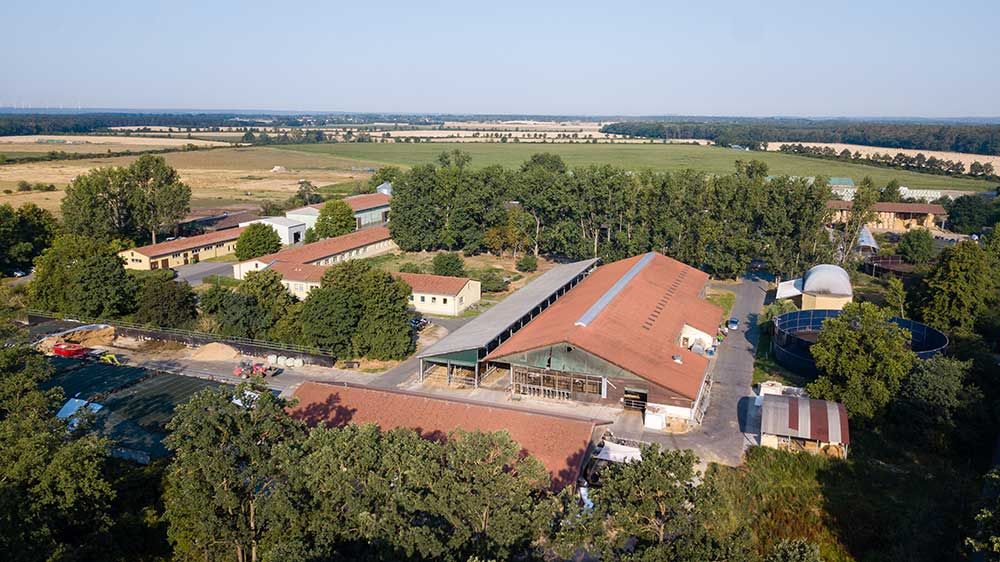 Smartmilc - artificial intelligence in agriculture
Smartmilc - artificial intelligence in agriculture -
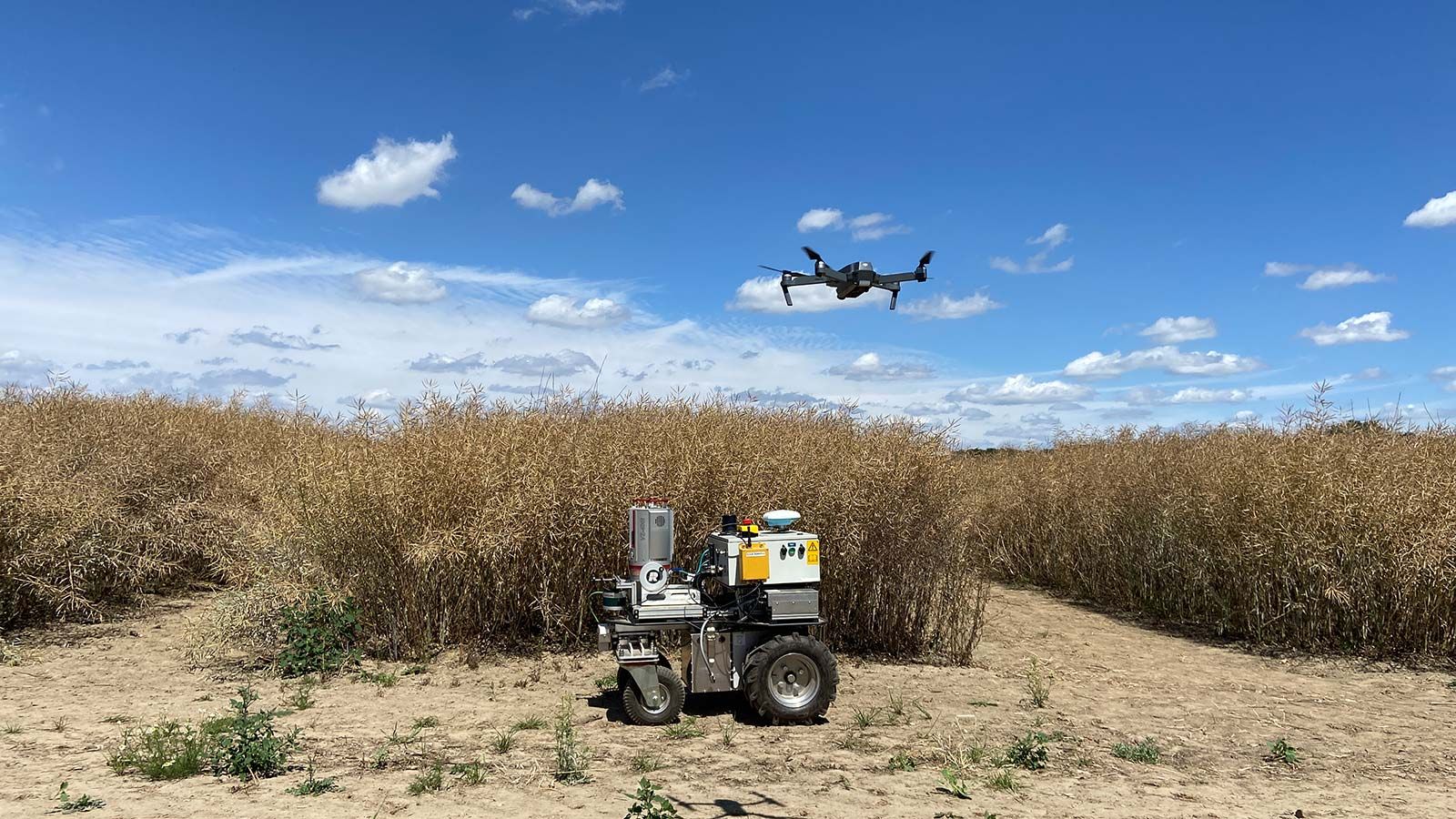 For the film about the PORTAL project, our drone was used close to the ground.
For the film about the PORTAL project, our drone was used close to the ground. -
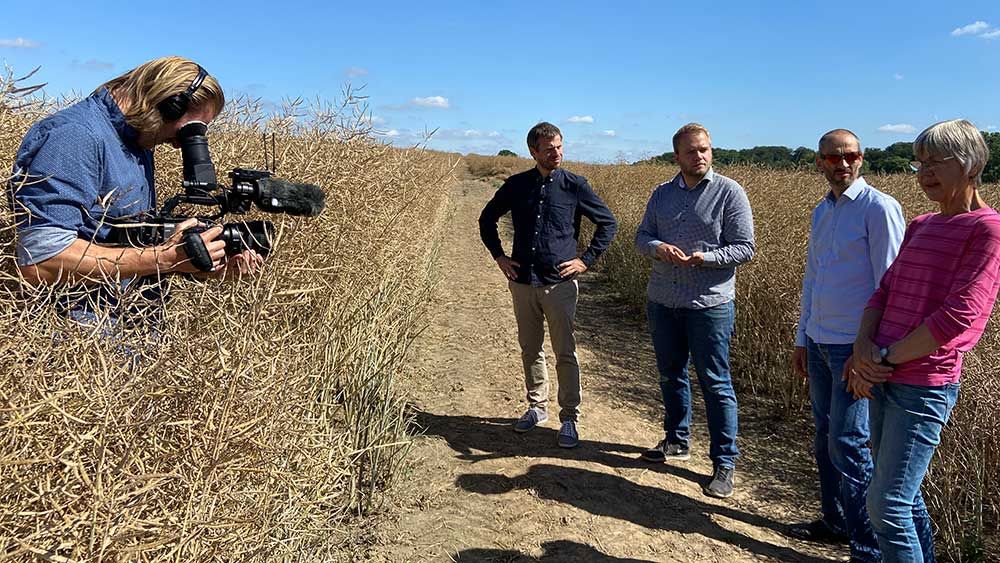 Filming directly from the trial field
Filming directly from the trial field -
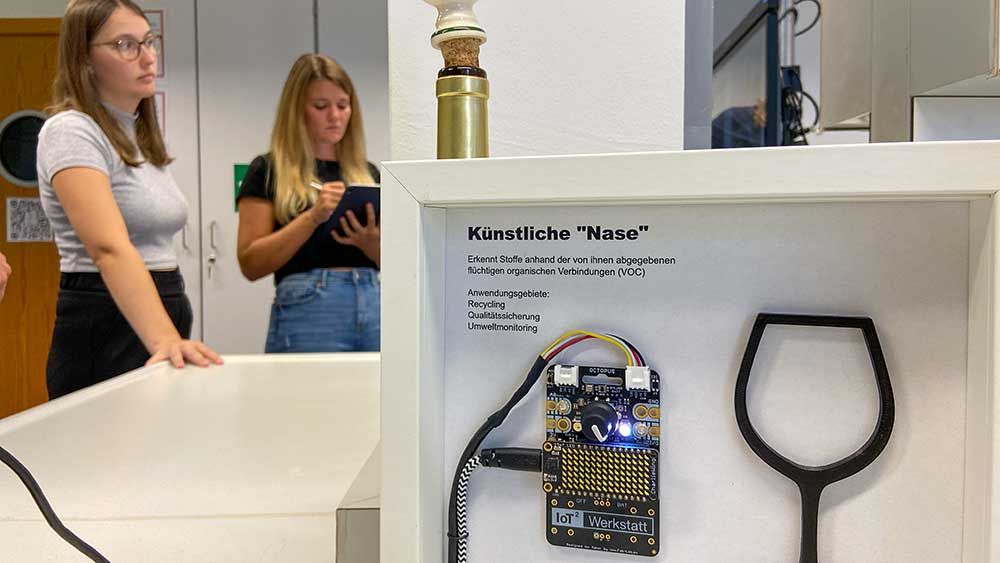 The Pilot research project developed an artificial nose
The Pilot research project developed an artificial nose -
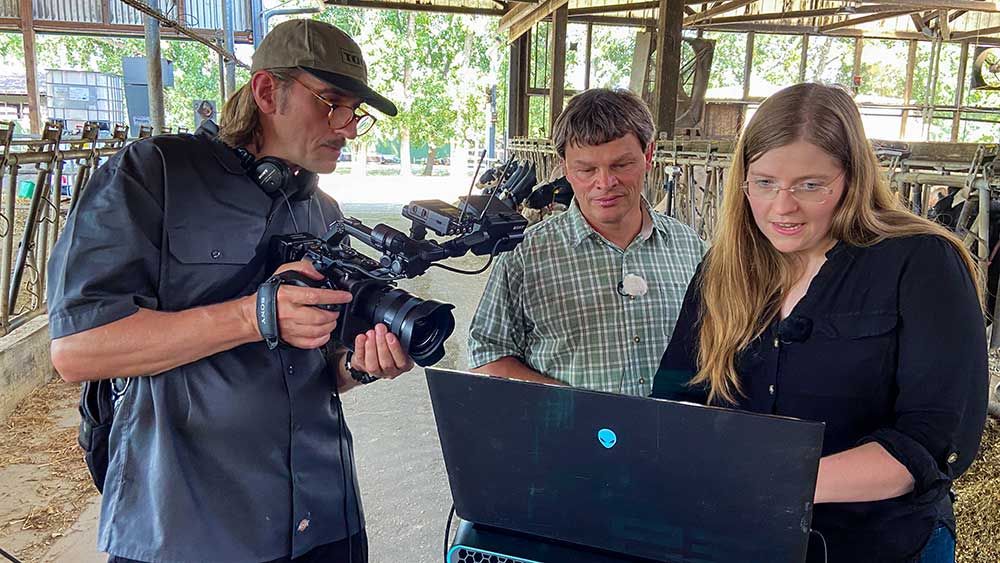 Filming for the BMEL's SmartMilc project
Filming for the BMEL's SmartMilc project
Short films with a documentary character for different communication channels
How can artificial intelligence be captured on film at all? Especially when it is still in the development and testing phase? In extensive preliminary discussions with the scientists, we find out which aspects play a fundamental role in the projects. What technology will be used and what goals the AI will pursue.
The idea is to accompany the everyday practice of the respective AI project on film and to concentrate on the most meaningful building blocks. Not so easy with such complex subjects. So that we and the protagonists have a good basis for our days of filming together, neues handeln creates a dramaturgy and a storyboard in consultation with us. This is worth its weight in gold, even for short films. No shooting starts without a director's plan. This way we can check after each scene whether all the important content was discussed in front of the camera and which additional B-roll images we might still need.
Very different research projects, one common subject
The research projects deal with plant cultivation, livestock farming, food production and rural development. For example, we are filming in a real laboratory, which is intended to help bring innovative ideas into practice, in a cowshed, at a plant breeding and potato processing facility. They all use very different techniques, such as robotics, sensor technology, hyperspectral cameras or drones, to design AI that supports people in their daily work processes.
The topics of sustainability, animal welfare and food safety play a prominent role in all projects. AI is supposed to be a means to an end, complementing human knowledge and making arduous tasks easier. Many people view the use of Artificial Intelligence with scepticism, fearing that it could replace important fields of daily interaction and thus make humans superfluous. But AI - as we got to know it during the whole production - only goes as far as humans let it. A very enriching film project that asks questions, opens up possibilities and offers solutions.
CUSTOMER:
TOPIC:
WEBSITE:
PRODUCED:
OUR JOBS
- Research, organisation and planning of the film production in Germany
- Shooting with own camera, sound and lighting equipment (Sony FX6)
- Drone shots
- Script and direction
- Post-production and colour grading with AVID Symphony on MacPro
- Music research and selection
- Transcoding for HD exploitation
